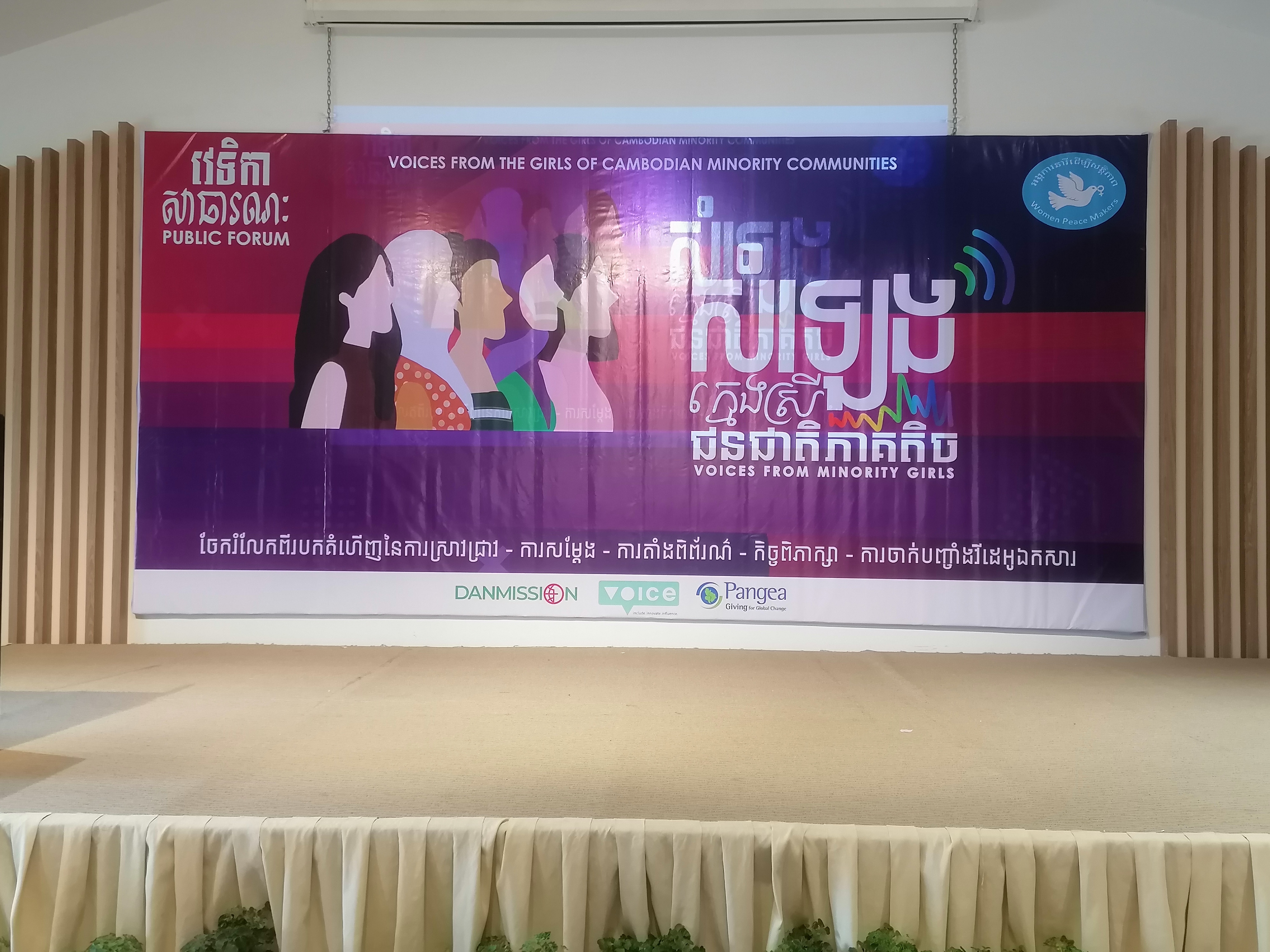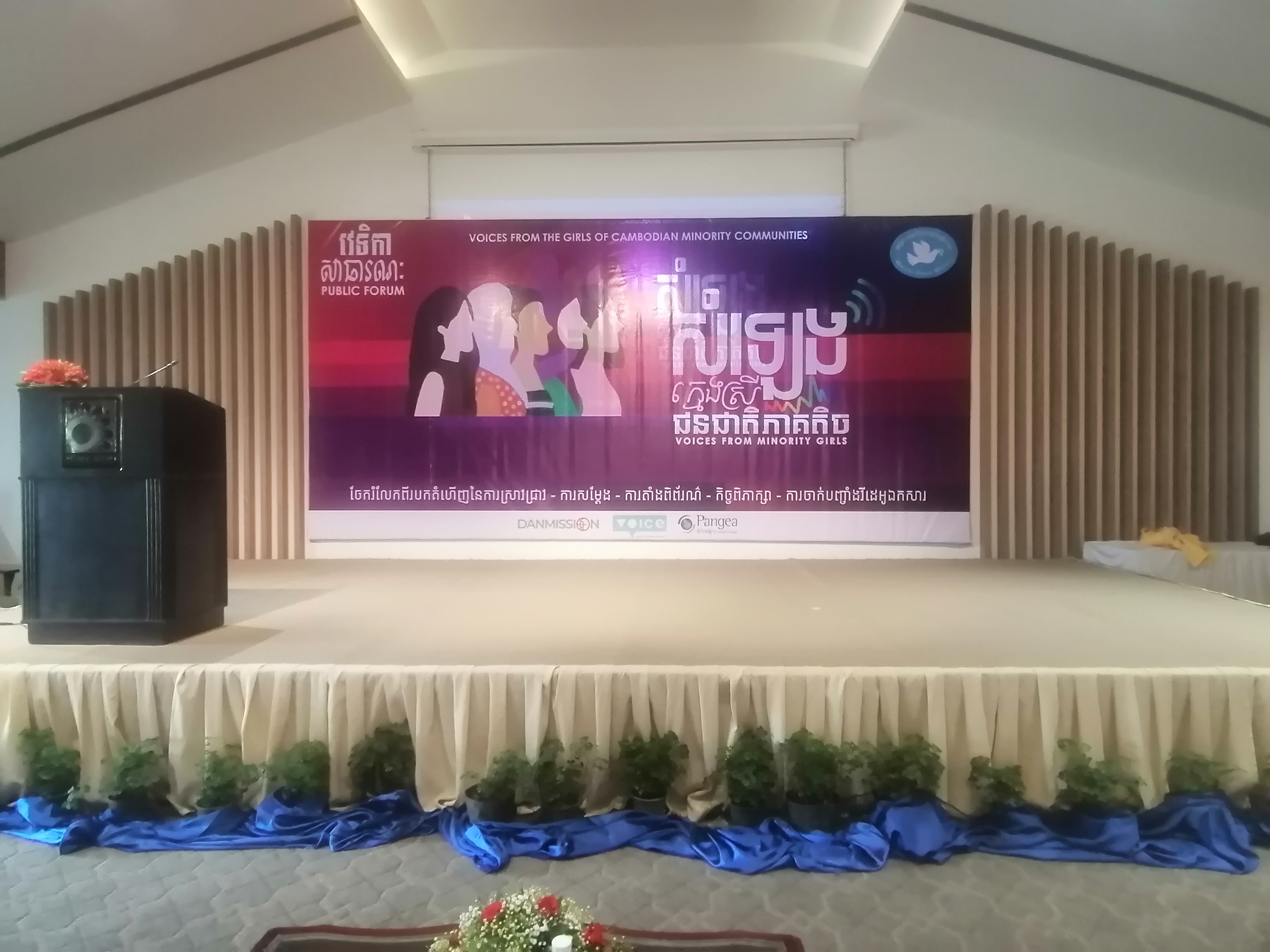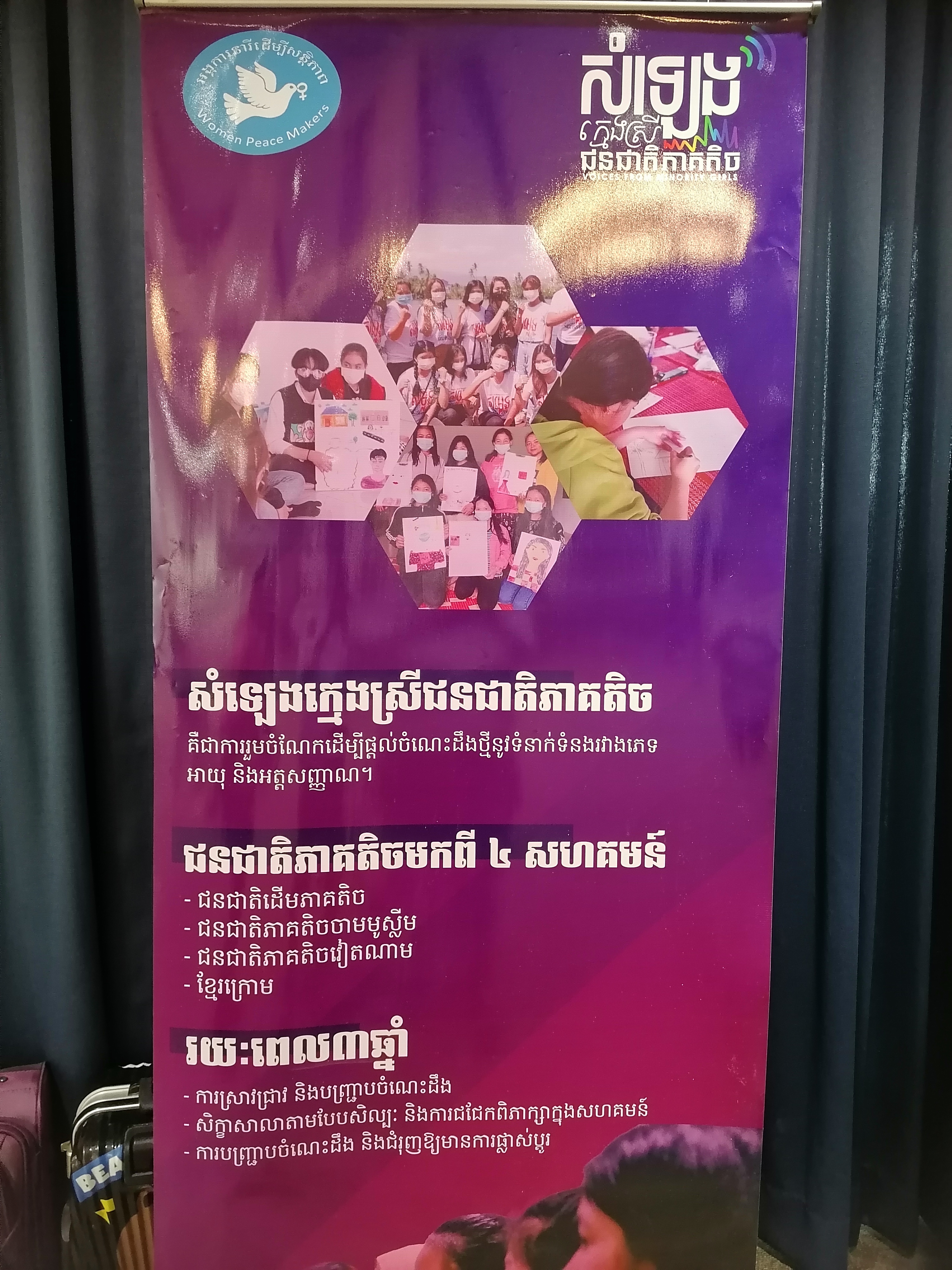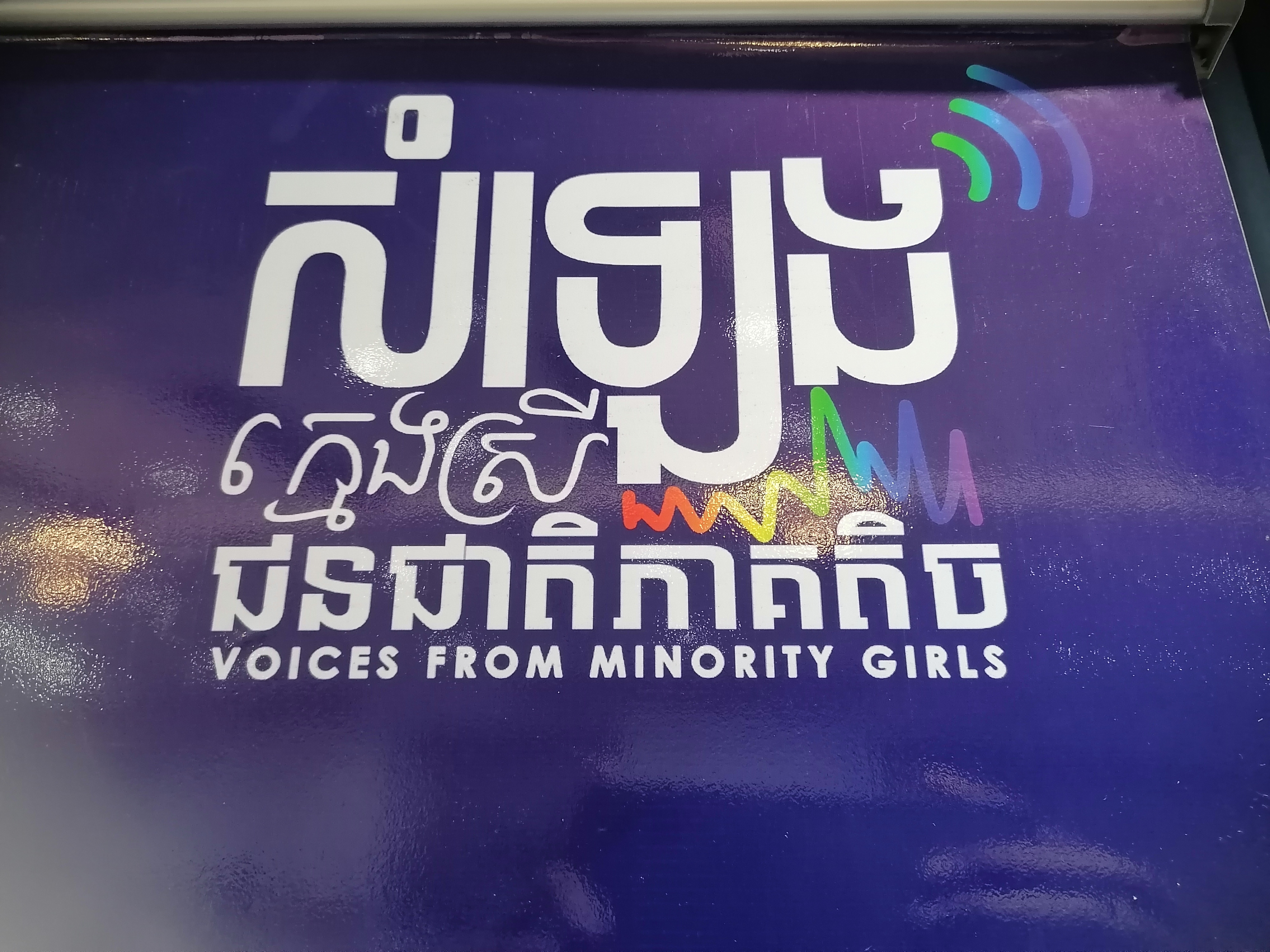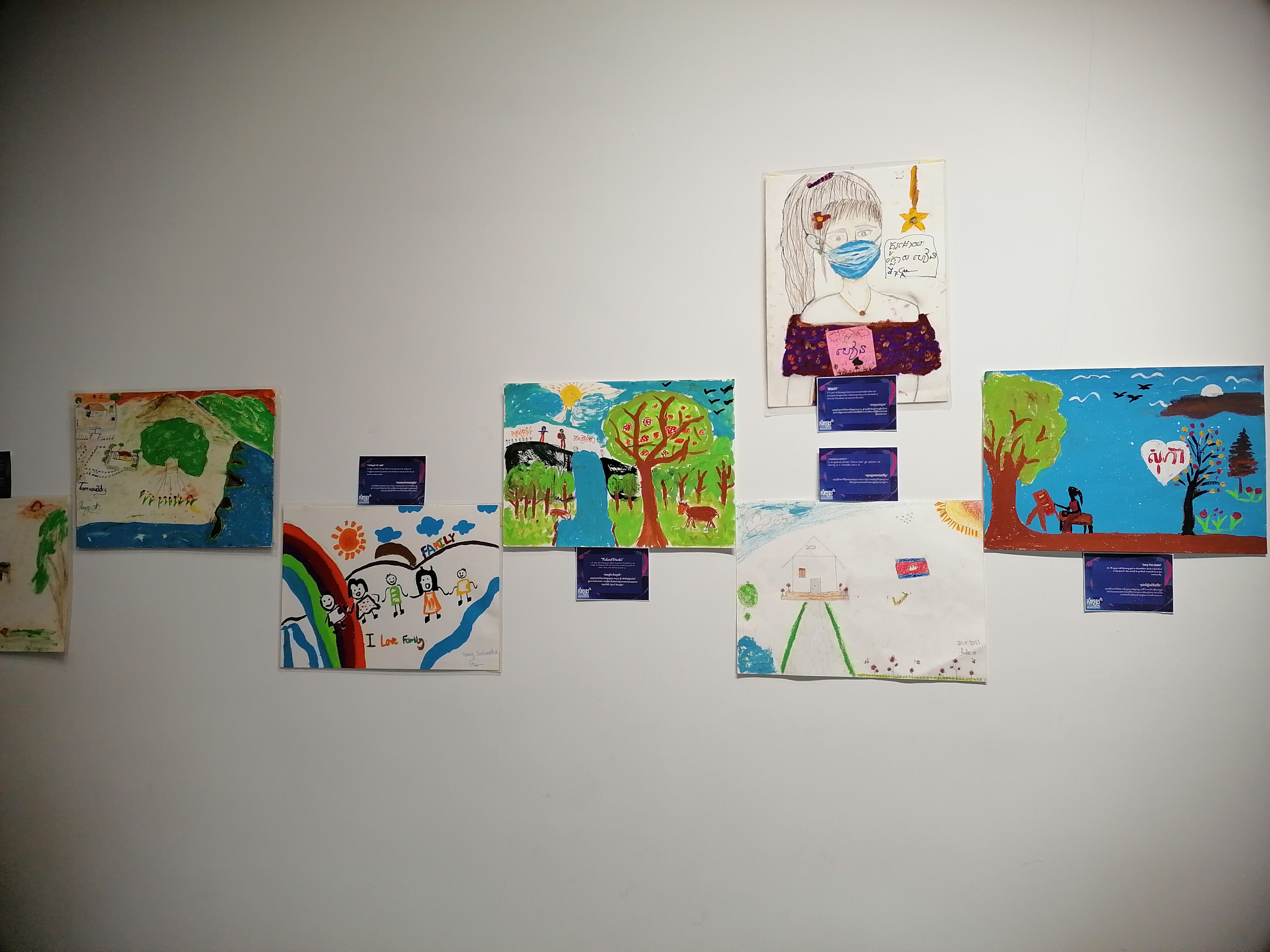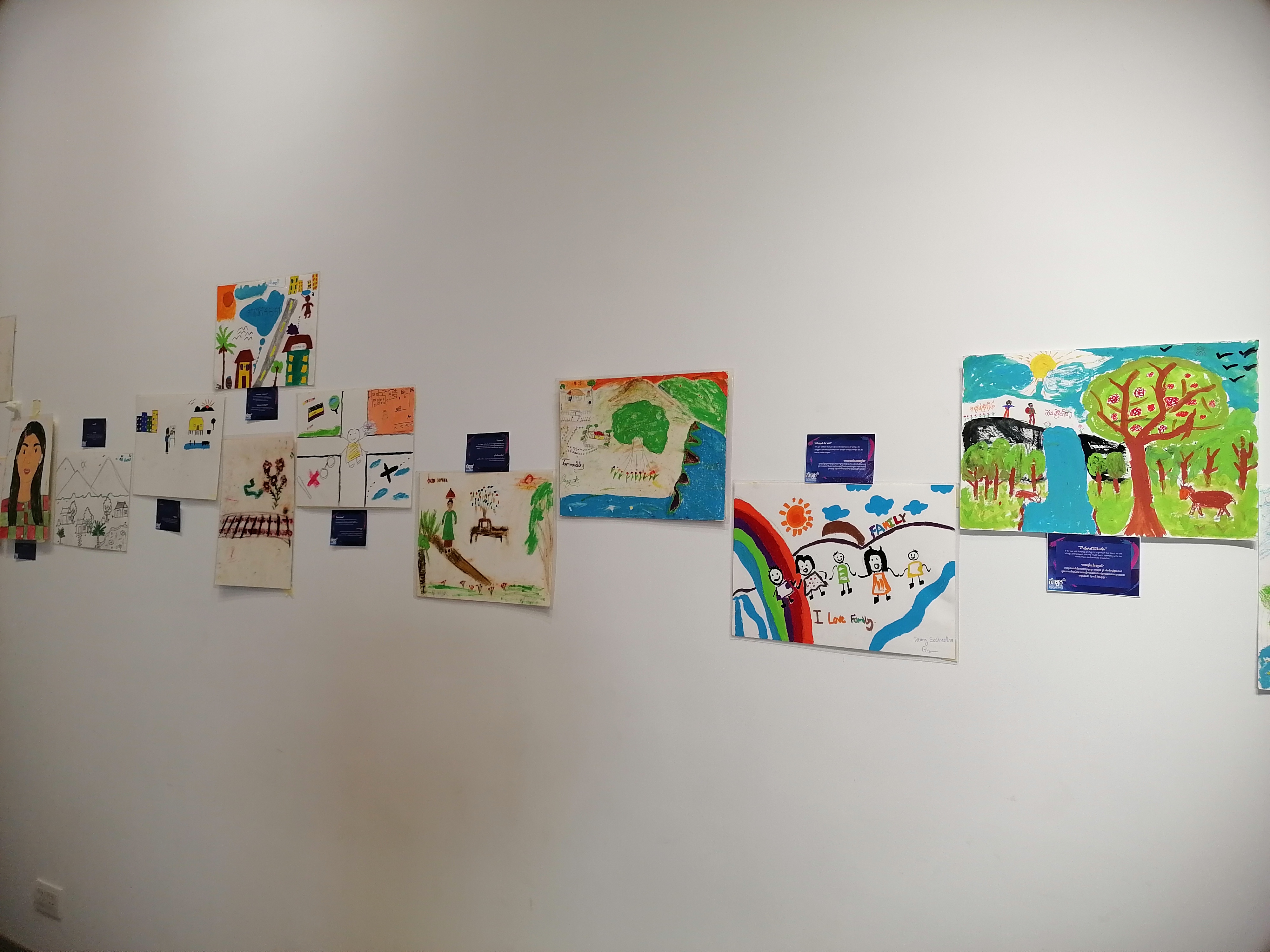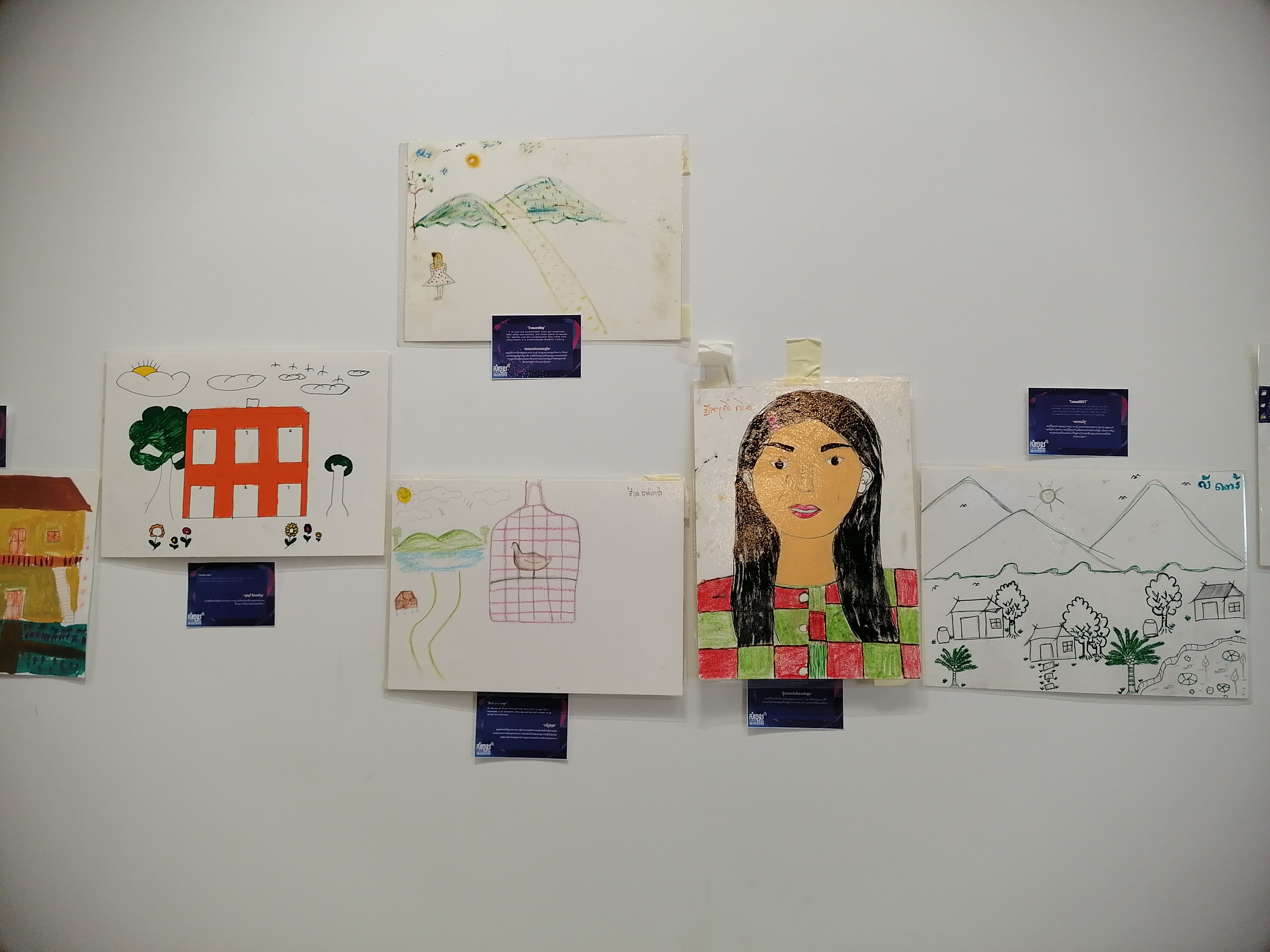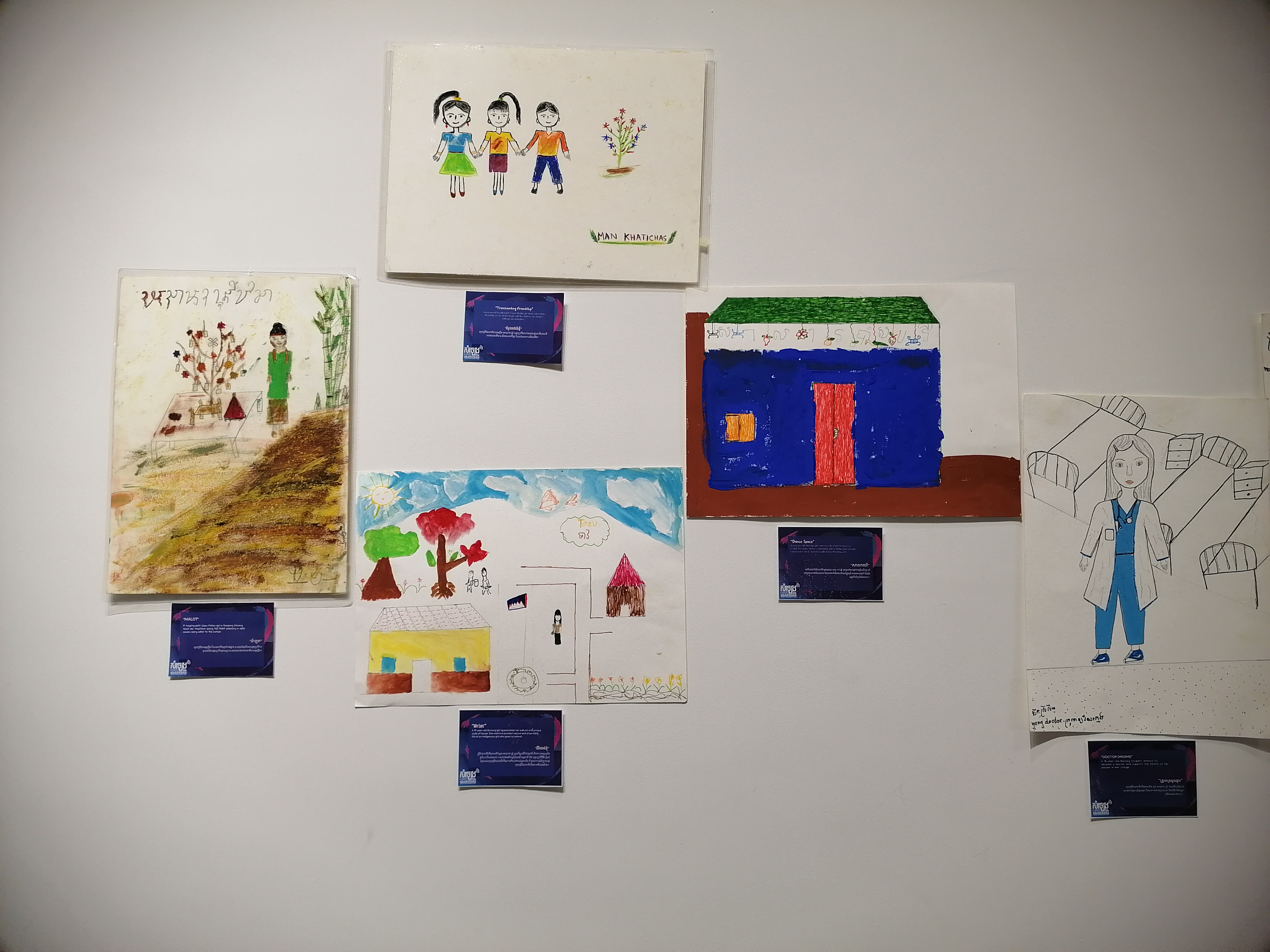PHNOM PENH: On the morning of 29 April 2022, Women Peace Makers presented their research at the Sunflower Ballroom of Himawari Hotel Apartments. Despite the vast programming around the world with the objective of achieving gender equality, empowering youth, and fostering inclusion among minority groups, minority girls are still invisible, ignored, and left behind.
EAC News team went to get more details of what minority girls from Bunong, ethnic Vietnamese, Cambodian Muslim, and Khmer Krom have faced and continued to endure.
‘Making the Space,’ an event supported by Danmission, Voice, and Pangea Giving, is a ground-breaking contribution that provides new knowledge at the intersection of gender, age, and identity. The research was conducted on the lived experiences, perspectives, challenges, issues, inner hopes, and dreams of girls from four minority groups in Cambodia - Indigenous, ethnic Vietnamese, Cambodian Muslim, and Khmer Krom.
Using a Facilitative Listening Design (FLD) methodology based on Cambodian homegrown information gathering and leverages on conversations that are participatory and driven by the same communities at the center of the study, organic conversations provided the qualitative data for researchers to publish in their book titled “Making the Space: Voices from the Girls of Cambodian Minority Communities.”
Seurn Sreytouch said that she is happy to join this event as she has joined many events by Women Peace Makers in the past.
She said, “Women Peace Makers has helped all women who have faced discrimination in the past to not feel discriminated against as much. They have supported and promoted minority women and [people like] me who are blind.”
Many honored guests attended this event including the British Ambassador to Cambodia, Tina Redshaw, the Director General of the Ministry of Women’s Affairs, The Chhunhak, the Country Director of Danmission and Voice, Peter Herum, UNICEF officer, Rin Ream, the lead researchers, Le Sen, Suyheang Kry, and Raymond Hyma, and many of the girls from minority groups who participated in the research. The panel discussions were moderated by Ms. Ester Pisey James.
According to the presented research, many of the girls lack education in their own indigenous languages, have received little to no support for higher education, have minimal or no sexual and reproductive health studies because the topic is considered taboo, lack transportation to go to school, face discrimination from other students and have no financial resources for higher education. Additionally, some of girls were found to have no legal documents to go to school or work in Cambodia, such as those who are ethnic Vietnamese. Overall, it was also found that societal norms largely dictate that girls do not need much education, as they are just to get married and stay at home.
Le Sen, one of the lead researchers, is a Cham Muslim from Kampong Chnang province. She has seen and faced these difficulties and has worked to create a platform to give a voice to minority girls so that the next generations will not have to face the same difficulties.
Suyheang Kry, the Executive Director of Women Peace Makers and one of the lead researchers, said that the more she continues to learn about the problems minority girls face, the more she wants to be a part of the solution. She said she wishes to not only create opportunities but also provide the means to access those opportunities.
UNICEF Officer, Rin Ream, said that UNICEF has formed programs on the development of human resources to teach five indigenous languages and create inclusive education plans with the Ministry of Education for persons with disabilities including higher education in sign language and braille.
In addition to the panel discussions, a presentation of the research with minority girls, and a new documentary on minority girls in Cambodia was shown. Singer, songwriter Xang Heang performed her song “Chomnorng,” or “Invisible Knot,” which was inspired by the stories of women, and written in order to raise awareness on gender-based violence against women.
Heang said that she thinks the song is fitting for the event because minority women and girls face not only physical violence but also emotional abuse and sexual harassment on top of a lack of education and financial resources. She said she wants to encourage them to continue speaking up and getting the support that they need.
She said, “I felt the same way, like we were struggling with finances, education and opportunities, especially for girls who are living a little bit far from the city. And because sometimes, like I said this morning, when we are facing some problems, sometimes we need to reach out to people to get support and sometimes if we are lucky, people can find you somehow.”
Sora, an indigenous student from Ratanakiri who currently resides with the Cambodia Indigenous Youth Association (CIYA), said that he has witnessed the unfairness minority women face, like a lack of financial support for education, and he also recalled the case of the 2018 rape and murder of indigenous women. He said that he sees that many families did not support women to move far away from home. He hopes that this event will help shine a light on the issues faced by indigenous people and provide them with the help that they need.
He said, “I want them [the government] to pay more attention to indigenous people. Like for me, there was a lack of education, boarding, school supplies, and scholarships. Many students give up [on their higher education] because of a lack of scholarships and their families are unable to support them to come study in Phnom Penh.”
Raymond Hyma, one of the lead researchers, said that this project was born about four years ago during a conversation he had with his co-researchers. He said he is proud that they were able to carry out the research on their own terms and in their own way, particularly through a Facilitative Listening Design, or FLD.
In the book he and his co-researchers published, it is quoted, “FLD demonstrates that it is through the power of listening that we not only understand more, but also take control of our ability to transform and drive change towards a more inclusive future.” (Excerpt from the book on page 250)
Dr. Staci B. Martin, a CBA/SOAR researcher, has said that too often impacted communities are research subjects, but rarely are the producers of research themselves. She believes that the FLD approach is truly a groundbreaking method, as it ensures that subjects are not ‘talked about’ but ‘talked with.’
'Making the Space' is a groundbreaking contribution for the inclusion of minority girls who are still invisible in society. As Dr. Martin has said, in order to improve the community, the people in the community themselves must be able to voice their concerns and solutions.
